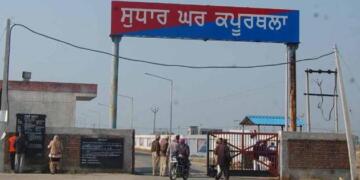Murder cases are incredibly complicated and demand specialized expertise. Statistics from Statista show that in 2022, there were 21,156 reported cases of murder or non-negligent manslaughter in the United States. Not every criminal lawyer has the experience or the skill set to tackle such serious charges. With your future and your freedom on the line, choosing the right defender is crucial.
A lawyer’s specialization matters in these types of cases. According to a survey by the National Association of Criminal Defense Lawyers (NACDL), lawyers who focus on homicide cases boast a 20% higher success rate in securing favorable outcomes for their clients compared to general criminal lawyers.
If you’re facing a homicide charge, your lawyer should be someone who specializes in criminal defense. Their expertise can mean the difference between spending years in prison and walking free. NYC murder and manslaughter lawyers say that with the right evidence and a solid defense, charges can often be reduced or even dismissed.
We’ll guide you on how to choose the perfect murder defense lawyer for your case. We’ll look at the key factors that should influence your decision, helping you have confidence in this critical moment.
Value of Legal Expertise
You have to give legal knowledge the highest priority when choosing a murder defense attorney. Dealing with such severe charges calls for a thorough awareness of the law, precedents, and defense strategy, so this is extremely important. Your attorney should have a strong background in criminal defense law—especially in homicide cases. Seek someone who is knowledgeable in the subtleties of murder trials, from developing a strong defense to knowing the complex workings of the court system.
Legal knowledge is more than simply knowing the law; it’s also about how successfully your attorney could apply the knowledge to your situation. A skilled murder defense lawyer will be able to examine the particulars of your case, spot important legal issues, and create a strategic defense plan catered to your specific situation. They should be able to foresee difficulties, take advantage of weaknesses in the prosecution’s case, and finally aim for the best possible result for you. So, be sure that the attorney you choose has a history of success defending clients charged with charges identical to yours.
Evaluating Trial Experience
Look for a lawyer with a proven track record of handling murder cases in court. Experience in trials, particularly murder charges, is priceless since it shows the lawyer’s ability to strategize, present evidence, cross-examine witnesses, and anticipate the prosecution’s arguments.
Trial experience gives a lawyer the confidence and expertise needed to defend you aggressively in court. An attorney who’s successfully defended clients in murder trials is more likely to be prepared for any challenges that may arise during your case. They’ll understand the ways of presenting a strong defense, negotiating with prosecutors, and fighting for your rights before a judge and jury.
When assessing trial experience, ask about the outcomes of past murder cases the lawyer has handled. Knowing their approach, tactics, and results can help you better understand how they may handle your defense.
Assessing Communication Skills
During your initial consultation, pay attention to how well they listen to your concerns and how clearly they explain legal strategies. A skilled lawyer should be able to convey complex legal information in a way that you can easily understand.
Also, observe their courtroom presence. A confident and articulate lawyer can command attention and present your case convincingly to the judge and jury. Cross-examining witnesses, delivering opening and closing statements, and arguing motions all require strong verbal communication abilities. A lawyer who can communicate persuasively is more likely to build a compelling defense on your behalf.
Checking Client Testimonials
Reviewing client testimonials is a good approach to understanding the performance of a murder defense attorney. Client testimonials provide valuable information about the lawyer’s reputation, success rate, and overall client satisfaction. When reviewing testimonials, pay attention to the specific details mentioned by the clients. Look for comments on the lawyer’s communication skills, courtroom demeanor, ability to handle murder defense cases and dedication.
Negative testimonials can also reveal a lot. They may show red flags such as unresponsiveness, lack of empathy, or incompetence. Look at the overall patterns in the feedback rather than focusing on a few negative comments.
Understanding Fee Structure
As different lawyers may have different fee schedules, it’s important to ask about this upfront. Most murder defense lawyers charge either a flat fee or an hourly rate for their services.
- Flat Fee: You pay a set amount for the lawyer’s representation throughout the case. This is beneficial for budgeting since you know the total cost from the start.
- Hourly Rate: You pay for the actual time the lawyer spends working on your case.
- Additional Cost: Ask to check if there’s any additional cost, such as court filing fees, expert witnesses, or investigative services, as these may not be included in the base fee.
Some lawyers may also offer payment plans or alternative fee structures, so don’t hesitate to discuss your financial concerns and know your options.
Conclusion
Remember to follow the above instructions while choosing a murder defense attorney. Checking these elements will help you make sure you hire the best defense attorney to represent you before the courts.



























